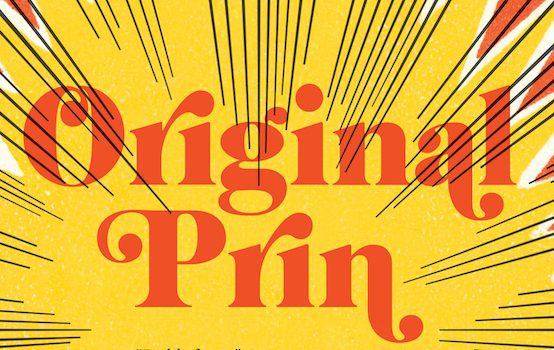A Religious Satire for the 21st Century

Original Prin: A Novel, Randy Boyagoda, Biblioasis, 2018, 223 pages
With his third novel, Original Prin, Randy Boyagoda confirms his position as one of the best satirical writers today. More immediately funny than either Governor of the Northern Province or Beggar’s Feast, but just as deeply cutting, Original Prin tells the story of a 40-year-old Canadian English professor of Sri Lankan descent named Prin who, after recovering from prostate cancer, must travel to a middle-eastern country called “Dragomans” with a consultant to save his Catholic university.
Like a lot of small liberal arts schools today, University of the Family Universal, or UFU for short, where Prin teaches, is struggling. It changed its name from University of the Holy Family to UFU to become more “relevant” and created an app—iTouchUFU—but these have done little to curtail failing enrollments. A lawsuit the university was forced to settle for inviting students to read a novel about “corruption-fighting vampires who were Indigenous youth leaders” didn’t help. “Following a dramatic online investigation, the novel turned out to have been written by a middle-aged Indigenous author.”
The school’s president, Father Pat, who is straight out of a J. F. Powers short story, calls the faculty together to give them the bad news: unless the school can find more students, it will close at the end of the summer. Clueless as how to save the university, Father Pat has hired a consultant—a former English professor and, as it happens, Prin’s grad school flame, Wende, who specializes in “identifying financially viable options for under-performing academic institutions to continue delivering content.”
Wende presents the faculty with two options for saving the school: sell UFU’s buildings to a Chinese developer to transform into an assisted living care facility where the professors would provide “stress free” workshops to residents, or take money from the university-less country of Dragomans in exchange for providing online classes and degrees to its citizens. A professor is needed to give lectures to both groups and report back to his colleagues, and the task falls to Prin.
Boyagoda has an eye for the absurdities of modern university life. Prin, whose research specialty is seahorses in Canadian literature, is less preoccupied with status than Don DeLillo’s Jack Gladney in White Noise—the chair of Hitler Studies at College-on-the-Hill who doesn’t speak German but who excels at performing profundity. Yet, like Gladney, Prin is largely unaware of why he does what he does.
The central conflict in the novel is internal. Prin, who is a happily married father of three and practicing Catholic, agrees to go with Wende to Dragomans against his wife wishes because, he claims, he heard God telling him to “Go.” This divine mandate coupled with his physical inability to commit adultery will be his failsafe shield and sword, as it were, as he undertakes what he sees as the heroic work of saving the university (and his job).
Yet, there are reasons to doubt Prin’s understanding of himself and his mission. Without giving too much away, Boyagoda presents us with a Prin who is willing to give into small, seemingly insignificant temptations—beginning with drinking alcohol during Lent and eating a steak on Good Friday—that become more serious as the novel progresses. Was the voice Prin heard God’s? Or was it his own? If it was the latter, who is the real Prin? Perhaps not as he sees himself—a faithful husband, devout Catholic, and caring father.
The title of the novel is obviously a play on “original sin,” which was Adam’s eating the fruit of the Tree of Good and Evil in the Garden of Eden in rejection of God’s verbal prohibition. It also refers to a situation at the end of the novel when two Prins appear following a terrorist attack in Dragomans—an original Prin and a fake. But mostly it alludes to Prin’s struggle—again, of which he is not always aware—to understand who he is. One question the novel asks is to what degree is Prin responsible for the situation in which he finds himself at the close and to what degree is he merely a hapless victim of a world that has gone off the rails?
Salman Rushdie calls Original Prin a “richly funny” work, which is spot on. Readers may be disappointed with the cliff-hanger ending, but take heart. The good news is that this is but the first installment of a planned trilogy. May the second Prin come quickly.
Micah Mattix is the literary editor of The American Conservative.
Comments